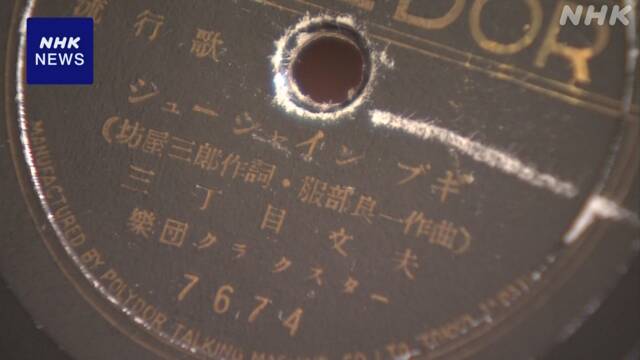Ryoichi Hattori, the composer of the hit "Tokyo Boogie Woogie" and one of the leading musicians of the Showa era, has found a boogie-woogie record with lyrics about a boy living while shining shoes after the war, and experts point out that it tells the story that Hattori worked on boogie woogie on various themes.
Ryoichi Hattori, a musician representing the Showa era, known for many famous songs such as "Blue Mountain Range", also wrote a song called "Boogie Woogie" that was characterized by a light rhythm and dynamic melody, and "Tokyo Boogie Woogie" sung by Shizuko Kasagi, released in 1948, was a big hit.
What I found was a record of "Shoe Shine Boogie" released the following year in 1949.
The main character is a boy who lives while shining shoes after the end of the war, and it is a boogie woogie with up-tempo up-tempo songs to lyrics such as "I was born in a burnt field" and "Boogie Woogie boy's shoe shine".
According to record culture researcher Toru Hori, since "Tokyo Boogie Woogie" became popular, Hattori has released "Shopping Boogie" and "Jungle Boogie" one after another, and many of his recordings were stored at record companies.
However, about this "Shoe Shine Boogie", although there was a record of its release, there was no recording left.
The record was found by a collector at an Internet auction a few years ago, but it was reissued on CD 74 years after its release because it was confirmed as authentic by a music company.
Hori points out that this shows that Hattori composed boogie-woogie on a variety of themes after the war, drawing inspiration from the people who lived robustly.
Hori said, "There has been a record of releases so far, but I was surprised to hear what kind of song it was for the first time after discovering the record. I think Mr. Hattori had the idea that 'if you do one thing, you can do something more interesting,' so you can see the process of development from the original Tokyo Boogie Woogie."
On top of that, he says, "I think the kind of energy that Japan gradually finds vitality immediately after the end of the war is expressed in the music."

